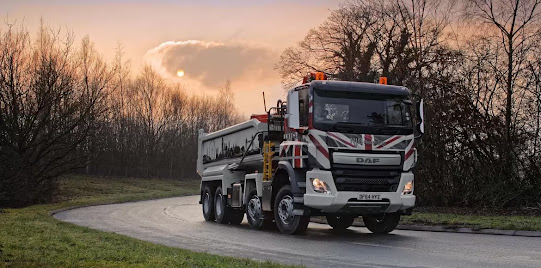Introduction
Optimize skip hire for large-scale commercial projects—this phrase isn’t just a logistical concern; it’s a strategic imperative for businesses involved in construction, demolition, or large refurbishments.
From towering construction sites to expansive industrial developments, commercial projects generate vast amounts of waste. If not managed properly, waste disposal can hinder timelines, increase costs, and potentially violate environmental and safety regulations.
This guide provides practical and scalable methods to ensure your skip hire strategy supports rather than hinders your project, with real-world references such as Skip Hire Ewell, Skip Hire Brixton, and Skip Hire Weybridge to give local relevance.
Why Optimizing Skip Hire is Crucial in Commercial Projects
Large commercial developments present unique challenges when it comes to waste management:
Volume: Thousands of tons of materials, including rubble, metal, wood, and packaging.
Complexity: Multiple contractors and activities running simultaneously.
Regulations: Strict adherence to environmental laws and local council permits.
Without a streamlined skip hire solution, waste can pile up, causing safety hazards, site inefficiencies, and non-compliance with government mandates.
Step-by-Step Guide to Optimize Skip Hire for Large-Scale Commercial Projects
A. Pre-Project Planning
Effective waste management begins long before the first load of soil is dug. Pre-planning your skip hire strategy should include:
Volume Estimation: Calculate projected waste volume using historical data or project blueprints.
Waste Segregation: Plan to separate materials such as metal, concrete, timber, and general waste.
Permit Requirements: Research if permits are required (especially if skips will be placed on public roads).
A thorough Waste Management Plan (WMP) should be created and reviewed with your contractor and site manager before the project begins.
B. Choosing the Right Skip Size
One of the most common pitfalls is choosing the wrong size skip. A too-small skip leads to constant emptying, while an oversized one wastes money and space.
Common commercial skip sizes:
8-yard skips: Suitable for medium-sized waste from smaller construction tasks.
12-yard skips: Great for bulky but lightweight materials such as packaging.
20 to 40-yard Roll-on Roll-off (RoRo) skips: Ideal for heavy-duty projects requiring continuous waste disposal.
Services like Skip Hire Brixton often offer consultations to help determine appropriate skip sizes for your specific job.
C. Scheduling Collections and Deliveries
Unscheduled delays in skip collection can paralyze operations. To avoid this:
Create a collection calendar that aligns with project milestones.
Use real-time monitoring tools to assess fill levels.
Partner with providers who offer same-day or 24-hour turnarounds, such as Skip Hire Weybridge.
Being proactive with collection timing ensures skips are emptied before they overflow, keeping your site safe and compliant.
D. On-Site Placement and Accessibility
Strategic placement of skips can enhance site workflow. Ensure that:
Skips are placed close to areas of active work to reduce transit time.
Access routes are wide enough for skip lorries.
Placement doesn’t obstruct site operations or emergency access.
It’s also wise to place skips on solid, level ground and use signage to guide workers in correctly disposing of materials.
E. Collaboration with Reliable Providers
Working with trusted local providers like Skip Hire Ewell, Skip Hire Brixton, or Skip Hire Weybridge gives you logistical and compliance advantages.
Key qualities to look for in a skip hire provider:
Proper licensing and certifications
Timely delivery and collection
Waste sorting and recycling capabilities
Transparent pricing with no hidden costs
Building a relationship with a reputable provider ensures consistent service, flexibility, and expert advice.
Legal and Environmental Responsibilities
A. Regulatory Compliance
Commercial projects must comply with local and national waste laws. This includes:
Duty of Care: Ensuring waste is managed responsibly from the point of generation to final disposal.
Permits: Local councils often require skip permits for public placement.
Waste Transfer Notes: Always document the type, quantity, and route of waste materials.
Ensure your provider is registered with the Environment Agency and can provide necessary documentation for audits.
B. Environmental Impact
Skip hire plays a pivotal role in sustainability. You can contribute to a greener future by:
Maximizing on-site segregation to make recycling easier.
Partnering with providers who divert waste from landfills through reuse and recycling.
Educating on-site staff on eco-conscious disposal methods.
Sustainable practices not only align with modern environmental expectations but may also enhance your company’s reputation.
Cost-Effective Waste Management Tips
Here are some additional strategies to reduce waste-related costs on commercial projects:
Order skips in bulk to benefit from multi-skip discounts.
Compact waste before placing it in skips to maximize volume usage.
Schedule collections during low-traffic hours to avoid additional transportation charges.
Use labeled skips for specific materials—this improves recycling rates and reduces mixed waste charges.
When efficiency is combined with careful planning, even the largest commercial projects can achieve smooth, cost-effective skip hire operations.
Conclusion
Learning how to optimize skip hire for large-scale commercial projects is essential for any business involved in construction, demolition, or infrastructure development. From developing a detailed Waste Management Plan to selecting the right provider—every step plays a critical role in ensuring efficiency, compliance, and environmental responsibility.
By leveraging regional providers such as Skip Hire Ewell, Skip Hire Brixton, and Skip Hire Weybridge, you gain access to local knowledge, timely service, and expert guidance tailored to your project's needs.
Smart planning today means a cleaner, safer, and more profitable project tomorrow.





